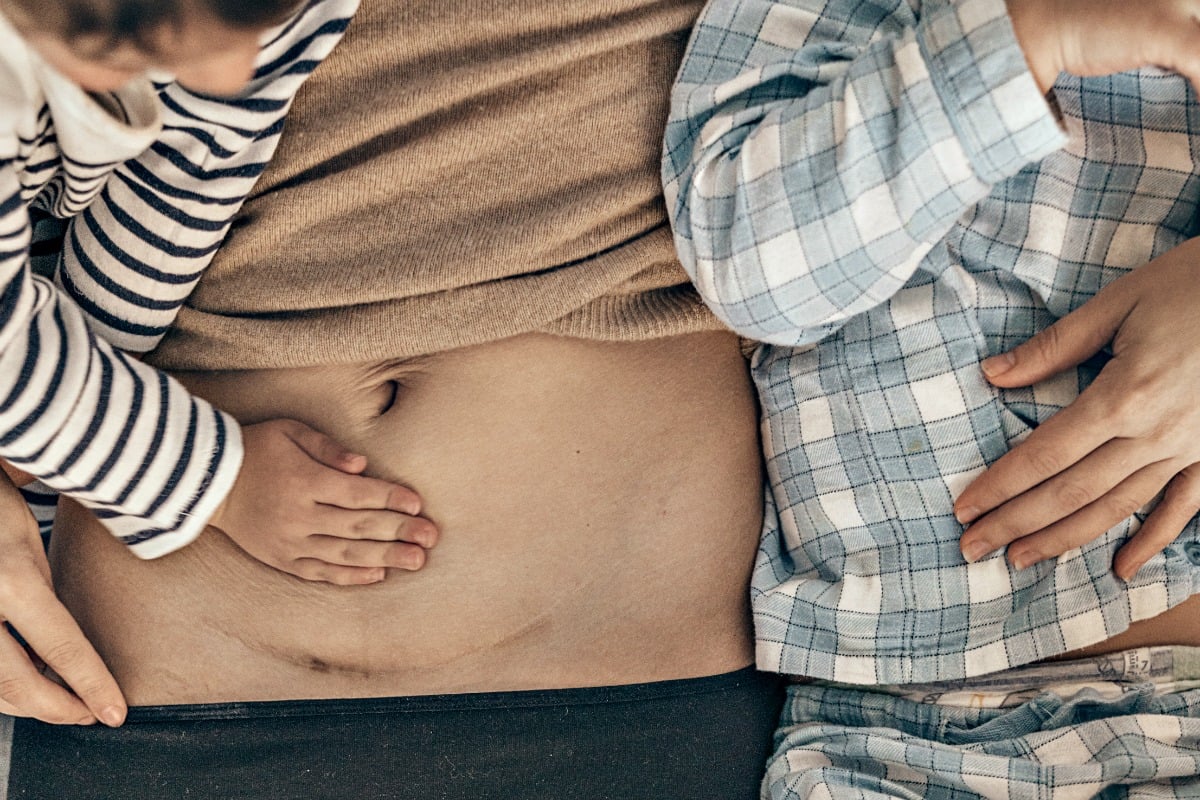
When Michelle McLean’s eldest son was diagnosed with Autism Spectrum Disorder, the Australian mum was left with a host of questions.
“I drove away that day thinking, ‘What did we do wrong?” she told Mamamia‘s daily news podcast, The Quicky. “‘Did we not show him enough love? Did we not hold him enough, hug him enough? Did I not read him enough stories? Did I not take him for walks and show him the sky, the trees, the birds?'”
That sense of guilt — though entirely misplaced — will be familiar to many parents of children living with autism. Sadly, it’s only perpetuated by misinformation peddled online and via social media that incorrectly and irresponsibly ties neurodevelopmental disorders to anything from diet to discipline.
But just last week there was a different kind of source. Mainstream media reported on a major research study that identified an association between autism and C-section births.
Given one third of Australian babies born each year are delivered via C-section, it’s understandable that the findings earned so much attention. And also why they may sound alarming for parents of c-section-delivered children living with autism — just like Michelle.
But experts are assuring everyone there’s absolutely no need to worry.
Listen: Autism researcher Dr Andrew Whitehouse explains the results of the study.
So, do C-sections cause autism or not?
No. Despite the sensationalist headlines, the results of the study do NOT mean that C-sections cause autism.

Top Comments
Neither do vaccines.
While correlation does not imply causation, we now have some information which should be checked out more carefully.
Some things which correlate can be safely ignored, for example the number of people who drowned in a year strongly correlates with the number of movies Nicolas Cage appeared in that year.
However for something like a possible link between C sections and autism it should be considered more seriously because there may actually be a link there.